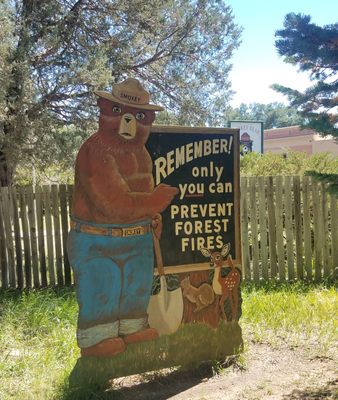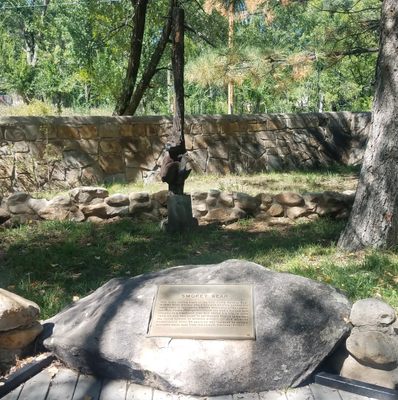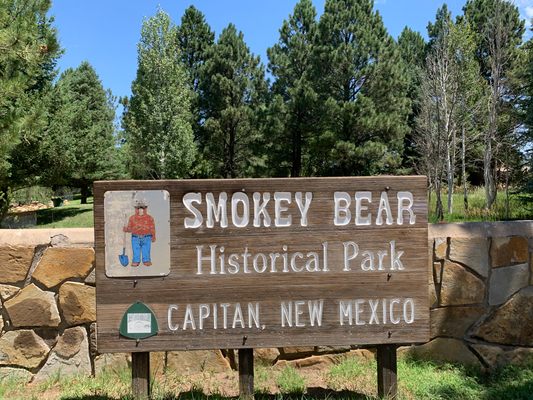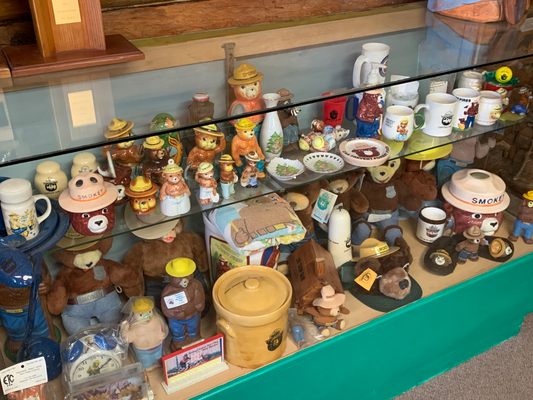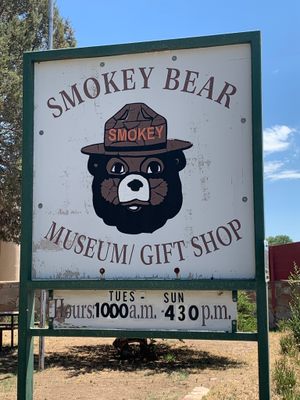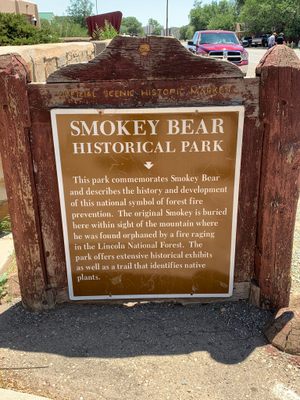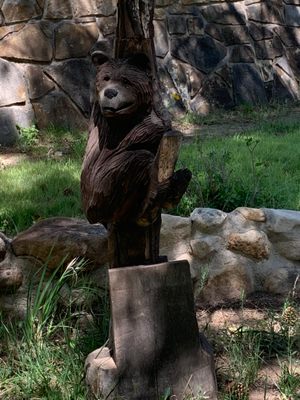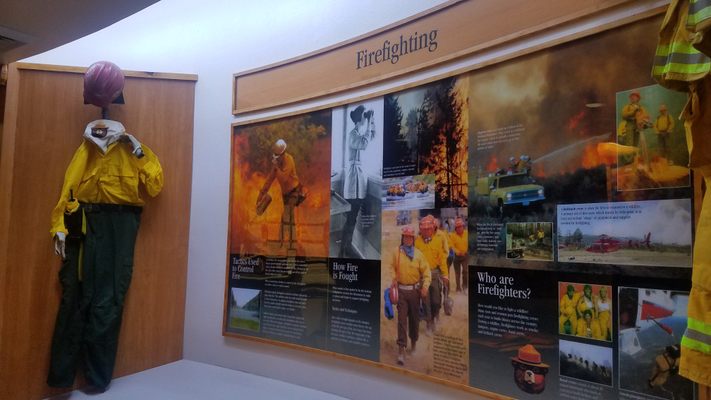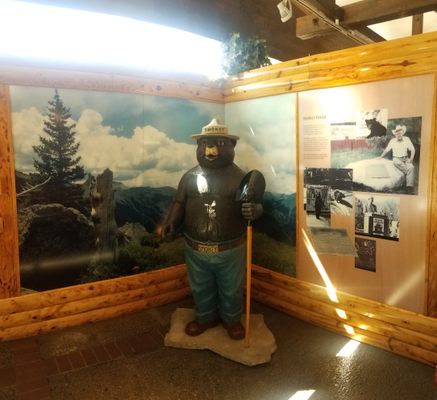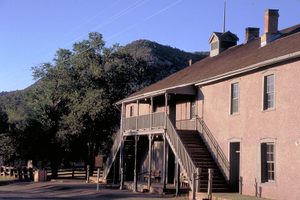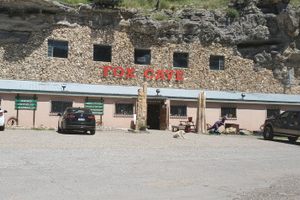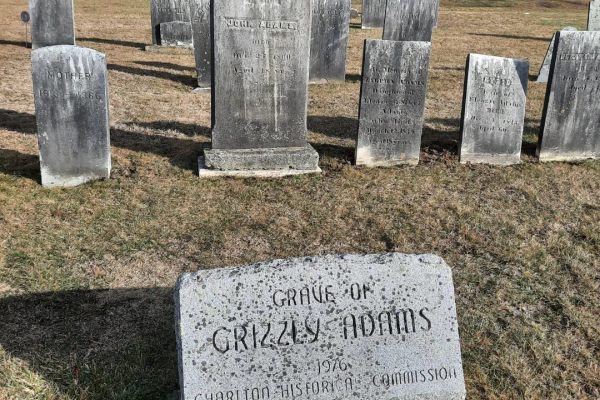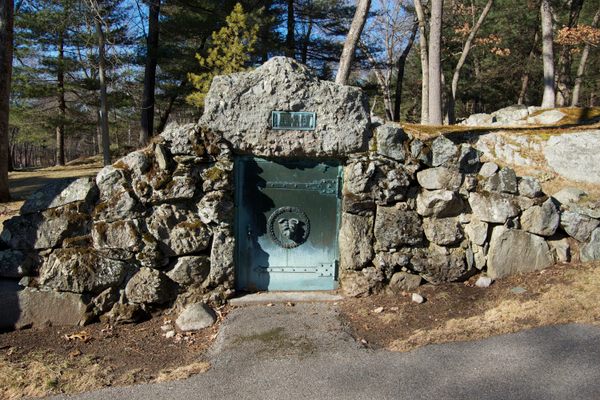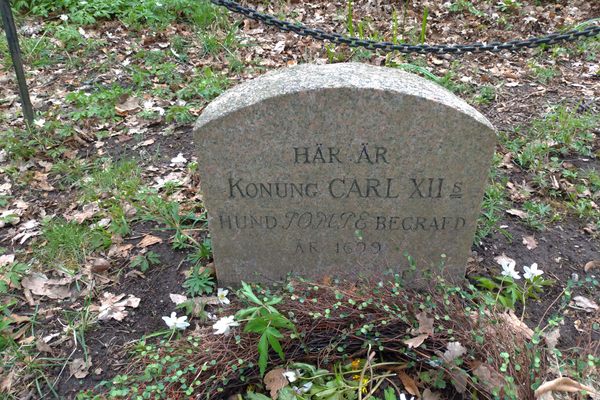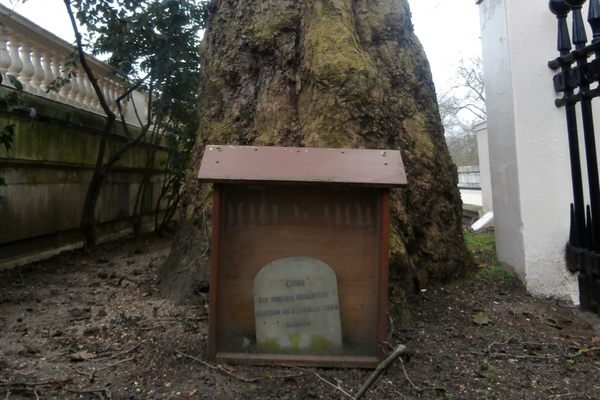About
In 1950, a wildfire raged in the Lincoln National Forest in New Mexico. Firefighters found an injured bear cub that had been separated from his mother and clinging to a singed tree to escape the flames. They rescued the cub, nursed him back to health, and named him Smokey. Soon, Smokey's story became national news. Once the cub was healthy enough, he was flown to Washington, D.C. and housed in the National Zoo.
Smokey had been named after the iconic fire-cautious bear. In 1944, facing a shortage of firefighters due to the World War II draft, the United States Forest Service developed the Smokey Bear mascot to help educate the public on the dangers of wildfires and how to help prevent them. The character proved so iconic and effective that even after the war was concluded, the Forest Service decided to keep using it in its educational materials.
The real-life Smokey became a celebrity as beloved as the Forest Service cartoon. Millions of people came to see Smokey in Washington, D.C. and he received over 13,000 letters from children per week—so much mail that the Postal Service made a new ZIP code just for him. In 1962, he was paired with a female bear named Goldie, but they didn’t produce any cubs. In 1971 another orphaned cub from the Lincoln National Forest, named Little Smokey, was put in the zoo habitat and Smokey and Goldie “adopted” it.
In 1975, it was announced that Smokey was retiring from his role as official mascot and that Little Smokey would be the new official Smokey Bear. In 1976, Smokey died at age 26. His remains were flown back to Capitan, New Mexico and he was buried on the grounds of what would become the Smokey Bear Historical Park.
Visitors to the site today can learn all about the history of Smokey Bear, fire ecology, and wildland firefighting. Smokey's grave is located in a garden adjacent to the museum.
Related Tags
Know Before You Go
The museum is open every day, except for major holidays, from 9:00 a.m. to 4:30 p.m.
Community Contributors
Added By
Published
October 1, 2018
